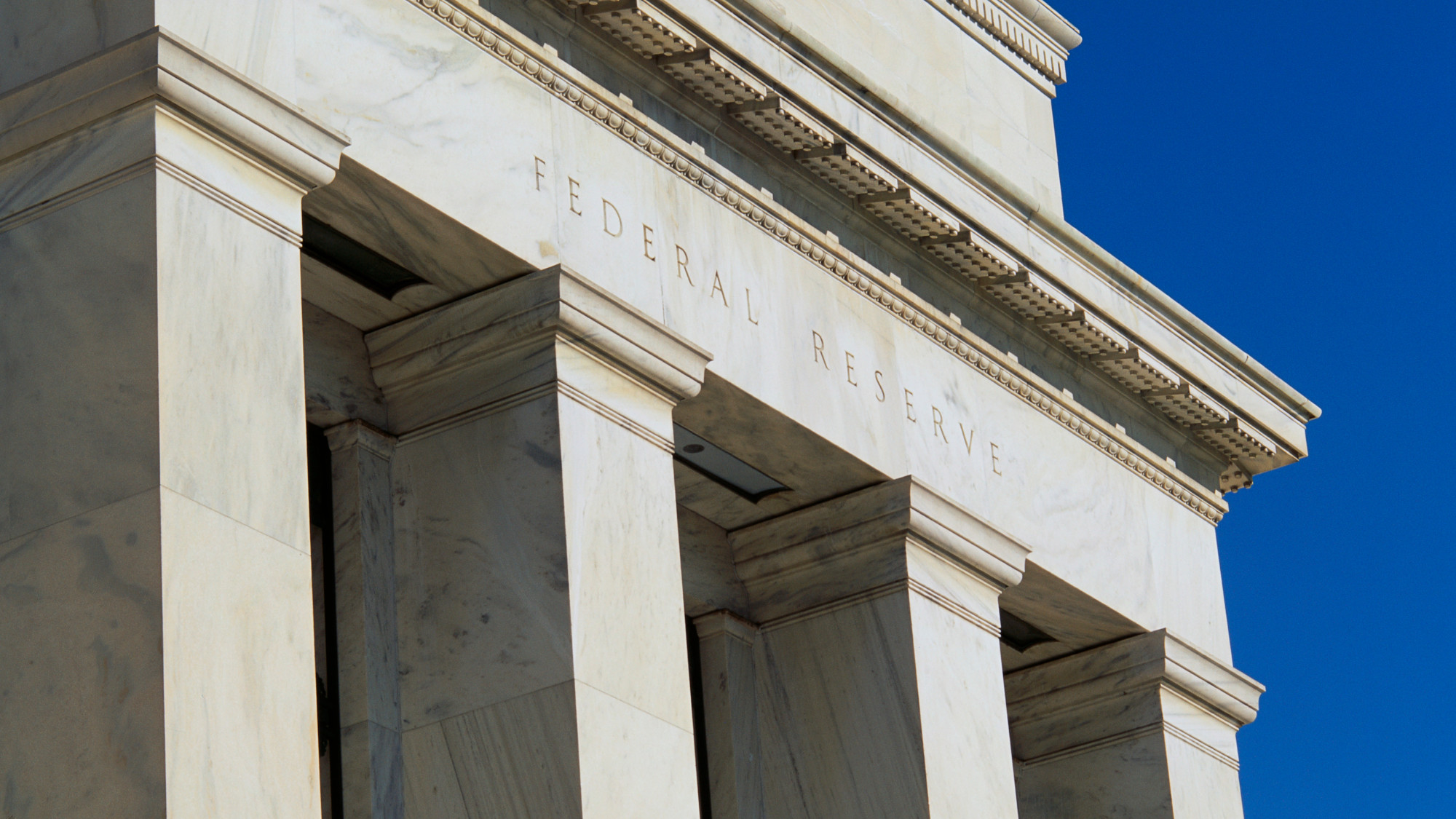National debt: Why Congress no longer cares
Rising interest rates, tariffs and Trump's 'big, beautiful' bill could sent the national debt soaring

A free daily email with the biggest news stories of the day – and the best features from TheWeek.com
You are now subscribed
Your newsletter sign-up was successful
"Now would be a very good time for Washington to bring back its debt obsession," said Rogé Karma in The Atlantic. That's because the perfect storm for turning the federal deficit into a "genuine crisis" has arrived. In recent years, the Federal Reserve has "raised interest rates dramatically in an effort to tame inflation." Since that means the federal government has to pay higher interest on its bonds, "government payments on debt interest soared to $881 billion in 2024." That's more than the U.S. spent last year on national defense. At the same time, President Trump's tariff policies have led "almost every credible" forecast this year to anticipate slowed economic growth. Then there's Trump's "big, beautiful," and bloated budget bill, which would add "more than $3 trillion to the deficit over the next decade." The warning signals are flashing red, and if Washington continues to ignore them, "very bad things can happen," from 1970s-style stagflation to a panicked flight from U.S. Treasuries and a global financial meltdown.
So far, bond markets are showing concern but not panic, said Victoria Guida in Politico. The credit rating firm Moody's slightly downgraded the safety of U.S. bonds, and investor unease pushed interest rates on those bonds above 5%. Still, if Congress doesn't heed these warnings and "shift the trajectory" of the budget bill—which would add trillions of dollars in tax cuts "without also making politically painful spending cuts"—"something more painful" than a mild Moody's downgrade could occur.
Don't bet on lawmakers acting responsibly, said Clive Crook in Bloomberg. The 2008 bank bail-outs and Covid-related spending under both Democrats and Republicans ballooned the national debt to previously unimaginable levels—it's now $36.2 trillion. Rather than confront debt of that magnitude, all but a few remaining deficit hawks "just stopped thinking about it." Facing it would mean huge spending cuts and major tax increases, both of which are very unpopular. Instead, Republicans are now trying to hide the bill's "unfathomable cost" from voters, said Jessica Riedl in MSNBC.com. But it's the voters who will suffer as a result. The rapidly growing debt and massive interest payments create "economic drag," diverting wealth "away from the investments that would start businesses, create jobs, and raise incomes." As Washington continues to take an ostrich-like approach to the national debt, something large and unpleasant is bearing down on all of us.
The Week
Escape your echo chamber. Get the facts behind the news, plus analysis from multiple perspectives.

Sign up for The Week's Free Newsletters
From our morning news briefing to a weekly Good News Newsletter, get the best of The Week delivered directly to your inbox.
From our morning news briefing to a weekly Good News Newsletter, get the best of The Week delivered directly to your inbox.
A free daily email with the biggest news stories of the day – and the best features from TheWeek.com
-
 How the FCC’s ‘equal time’ rule works
How the FCC’s ‘equal time’ rule worksIn the Spotlight The law is at the heart of the Colbert-CBS conflict
-
 What is the endgame in the DHS shutdown?
What is the endgame in the DHS shutdown?Today’s Big Question Democrats want to rein in ICE’s immigration crackdown
-
 ‘Poor time management isn’t just an inconvenience’
‘Poor time management isn’t just an inconvenience’Instant Opinion Opinion, comment and editorials of the day
-
 Grand jury rejects charging 6 Democrats for ‘orders’ video
Grand jury rejects charging 6 Democrats for ‘orders’ videoSpeed Read The jury refused to indict Democratic lawmakers for a video in which they urged military members to resist illegal orders
-
 Democrats push for ICE accountability
Democrats push for ICE accountabilityFeature U.S. citizens shot and violently detained by immigration agents testify at Capitol Hill hearing
-
 Fulton County: A dress rehearsal for election theft?
Fulton County: A dress rehearsal for election theft?Feature Director of National Intelligence Tulsi Gabbard is Trump's de facto ‘voter fraud’ czar
-
 ‘Melania’: A film about nothing
‘Melania’: A film about nothingFeature Not telling all
-
 Greenland: The lasting damage of Trump’s tantrum
Greenland: The lasting damage of Trump’s tantrumFeature His desire for Greenland has seemingly faded away
-
 Minneapolis: The power of a boy’s photo
Minneapolis: The power of a boy’s photoFeature An image of Liam Conejo Ramos being detained lit up social media
-
 The price of forgiveness
The price of forgivenessFeature Trump’s unprecedented use of pardons has turned clemency into a big business.
-
 Will Peter Mandelson and Andrew testify to US Congress?
Will Peter Mandelson and Andrew testify to US Congress?Today's Big Question Could political pressure overcome legal obstacles and force either man to give evidence over their relationship with Jeffrey Epstein?